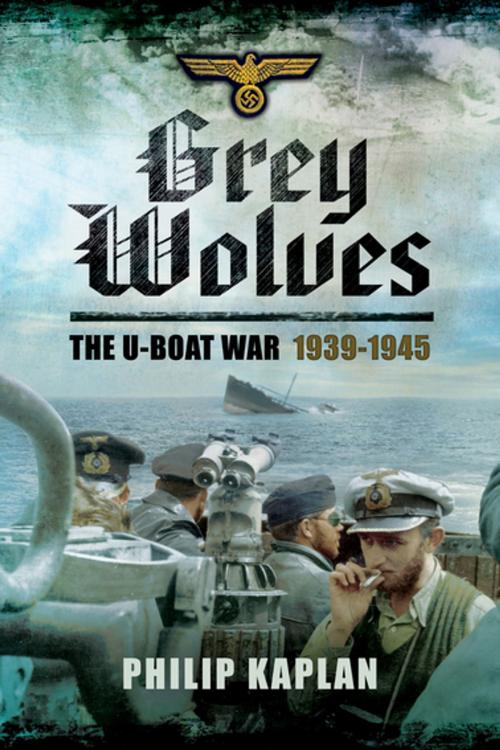Grey Wolves
The U-Boat War, 1939–1945
Nonfiction, History, Military, Pictorial, Germany, World War II| Author: | Philip Kaplan | ISBN: | 9781629140766 |
| Publisher: | Skyhorse Publishing | Publication: | June 3, 2014 |
| Imprint: | Skyhorse Publishing | Language: | English |
| Author: | Philip Kaplan |
| ISBN: | 9781629140766 |
| Publisher: | Skyhorse Publishing |
| Publication: | June 3, 2014 |
| Imprint: | Skyhorse Publishing |
| Language: | English |
A visceral portrait of the men who fought and died beneath the surface of the Atlantic in one of the most critical battles of WWII.
In the early years of the Second World War, an elite force of German submariners known as the U-Bootwaffe came perilously close to perfecting the underwater battle tactics that would sever Britain’s transatlantic lifeline. To the Allies, these enemy sailors were embarking on a mission of unequivocal evil.
Each member of the U-Bootwaffe understood that he must take pride in being part of a unique brotherhood. It was the only thing to hold on to as he was setting out—in claustrophobic, unsanitary, stench-filled, and ultimately hellish conditions—on a journey that would test his mental and physical endurance to the very limits, and which he had little chance of surviving. Those that did return soon ceased to take comfort in friends or family, dwelling on the knowledge that another patrol awaited them. By the end of the war, 27,491 of the 39,000 men who went to sea in the U-boats died in action. 5,000 of those who didn’t perish at sea were made prisoners of war. Of the 863 U-boats that sailed on operational patrols, 754 were lost.
Through letters, diaries, journals, and more, Grey Wolves memorably captures life and death on board a U-boat in the midst of a global conflict.
A visceral portrait of the men who fought and died beneath the surface of the Atlantic in one of the most critical battles of WWII.
In the early years of the Second World War, an elite force of German submariners known as the U-Bootwaffe came perilously close to perfecting the underwater battle tactics that would sever Britain’s transatlantic lifeline. To the Allies, these enemy sailors were embarking on a mission of unequivocal evil.
Each member of the U-Bootwaffe understood that he must take pride in being part of a unique brotherhood. It was the only thing to hold on to as he was setting out—in claustrophobic, unsanitary, stench-filled, and ultimately hellish conditions—on a journey that would test his mental and physical endurance to the very limits, and which he had little chance of surviving. Those that did return soon ceased to take comfort in friends or family, dwelling on the knowledge that another patrol awaited them. By the end of the war, 27,491 of the 39,000 men who went to sea in the U-boats died in action. 5,000 of those who didn’t perish at sea were made prisoners of war. Of the 863 U-boats that sailed on operational patrols, 754 were lost.
Through letters, diaries, journals, and more, Grey Wolves memorably captures life and death on board a U-boat in the midst of a global conflict.















